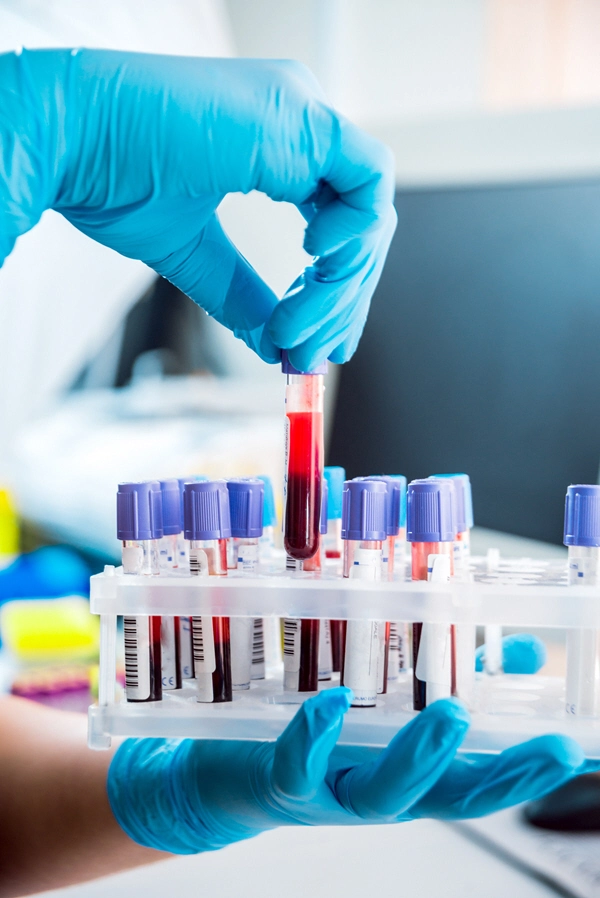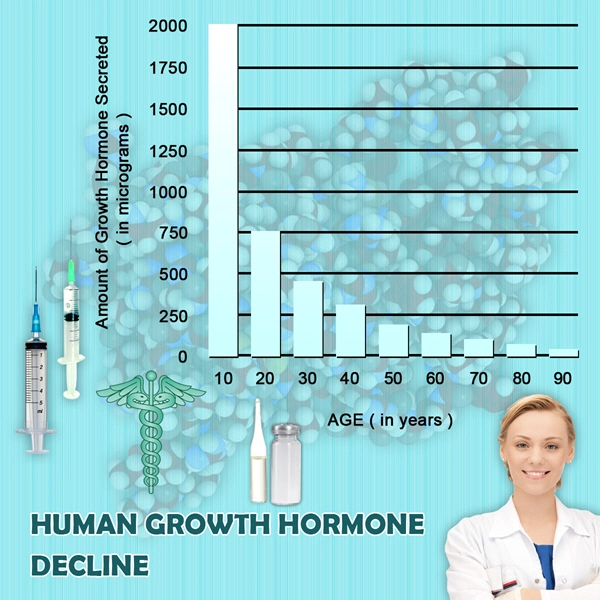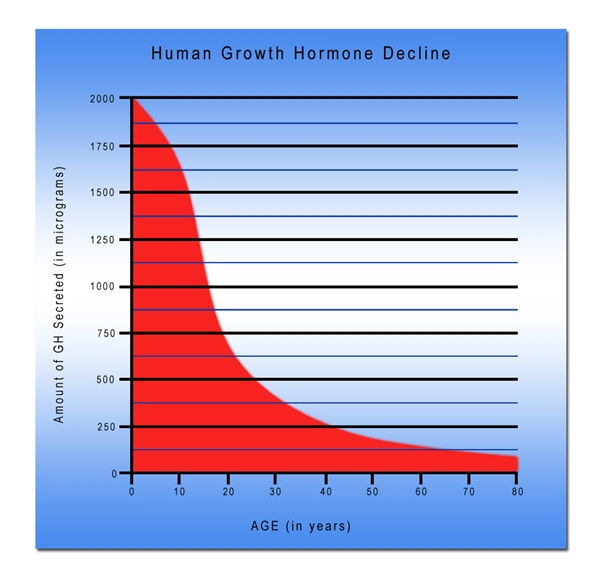Introduction to Low Libido
Low libido, or a decreased interest in sexual activity, is a common concern among American men. This condition can significantly impact quality of life, relationships, and overall well-being. Understanding the underlying causes and exploring effective treatments is crucial for those affected. Recent medical research has shed light on various factors contributing to low libido, offering hope and solutions for those seeking to reclaim their sexual health.
Hormonal Imbalances and Low Testosterone
One of the primary medical factors associated with low libido in men is hormonal imbalance, particularly low testosterone levels. Testosterone plays a crucial role in regulating sexual desire and function. Studies have shown that as men age, testosterone levels naturally decline, which can lead to a decrease in libido. However, low testosterone is not solely an age-related issue; it can also be caused by obesity, chronic illnesses, and certain medications. Medical interventions such as testosterone replacement therapy have been shown to effectively improve libido in men with clinically low levels of the hormone.
Psychological Factors and Mental Health
Psychological factors play a significant role in sexual desire. Stress, anxiety, depression, and relationship issues can all contribute to low libido. Research indicates that mental health conditions are prevalent among American men and can significantly impact sexual function. Cognitive-behavioral therapy and other psychological interventions have been proven effective in addressing these underlying issues, thereby improving libido. It is essential for men to seek professional help to manage these conditions and enhance their sexual health.
Lifestyle and Environmental Influences
Lifestyle choices and environmental factors also influence libido. Excessive alcohol consumption, smoking, and a sedentary lifestyle have been linked to decreased sexual desire. Additionally, exposure to certain chemicals and pollutants can disrupt hormonal balance, further impacting libido. Research suggests that adopting a healthier lifestyle, including regular exercise, a balanced diet, and reduced exposure to harmful substances, can positively affect sexual health and increase libido.
Medical Conditions and Medications
Various medical conditions and medications can contribute to low libido. Chronic illnesses such as diabetes, heart disease, and thyroid disorders can affect sexual function. Moreover, certain medications, including antidepressants, antihypertensives, and some cancer treatments, have been associated with decreased libido as a side effect. It is important for men to discuss these issues with their healthcare providers to explore alternative treatments or adjustments that can minimize the impact on sexual health.
The Role of Sleep and Fatigue
Sleep quality and fatigue levels are often overlooked factors in sexual health. Research has demonstrated a strong link between poor sleep and low libido. Men who experience chronic sleep deprivation or suffer from sleep disorders such as sleep apnea may find their sexual desire diminished. Improving sleep hygiene and addressing sleep disorders can lead to better overall health and increased libido.
Emerging Treatments and Future Directions
As medical research progresses, new treatments and therapies for low libido are being developed. From novel hormonal therapies to innovative psychological interventions, the future looks promising for men struggling with decreased sexual desire. Clinical trials are ongoing to evaluate the efficacy and safety of these emerging treatments, offering hope for more effective solutions in the near future.
Conclusion
Low libido is a multifaceted issue that affects many American men. By understanding the various medical, psychological, and lifestyle factors contributing to this condition, men can take proactive steps to address their concerns. Consulting with healthcare professionals, adopting healthier lifestyles, and staying informed about the latest research and treatments are essential for improving sexual health and overall well-being. As the medical community continues to explore and understand low libido, men can look forward to more effective and personalized solutions.

- Revitalizing Passion: Effective Strategies for Combating Low Libido in Long-term Relationships [Last Updated On: February 21st, 2025] [Originally Added On: February 21st, 2025]
- Revolutionizing the Landscape of Sexual Health: Addressing Low Libido through Medical Science [Last Updated On: March 2nd, 2025] [Originally Added On: March 2nd, 2025]
- Comprehensive Guide to Enhancing Male Libido: Understanding Causes and Exploring Treatment Options [Last Updated On: March 3rd, 2025] [Originally Added On: March 3rd, 2025]
- Understanding Low Libido in Men: Causes, Impact, and Treatments [Last Updated On: March 4th, 2025] [Originally Added On: March 4th, 2025]
- Exploring Physical Causes and Treatments for Low Libido in American Males [Last Updated On: March 4th, 2025] [Originally Added On: March 4th, 2025]
- Exploring Hormonal Influences on Male Libido and Sexual Health [Last Updated On: March 5th, 2025] [Originally Added On: March 5th, 2025]
- Comprehensive Guide to Understanding and Managing Low Libido in Men [Last Updated On: March 6th, 2025] [Originally Added On: March 6th, 2025]
- Unraveling the Link Between Anxiety and Diminished Sexual Desire in American Males [Last Updated On: March 6th, 2025] [Originally Added On: March 6th, 2025]
- Understanding and Managing Post-Menopausal Libido Decline: A Comprehensive Guide for Women [Last Updated On: March 7th, 2025] [Originally Added On: March 7th, 2025]
- Understanding and Managing Low Libido in Men: Causes, Impacts, and Strategies for Improvement [Last Updated On: March 8th, 2025] [Originally Added On: March 8th, 2025]
- The Interplay Between Mental Health and Libido: Understanding and Addressing Low Sexual Desire [Last Updated On: March 9th, 2025] [Originally Added On: March 9th, 2025]
- Unveiling the Link Between Chronic Diseases and Low Libido in American Males [Last Updated On: March 12th, 2025] [Originally Added On: March 12th, 2025]
- Exploring Effective Medical Therapies for Low Libido in Postpartum American Women [Last Updated On: March 13th, 2025] [Originally Added On: March 13th, 2025]
- Revolutionizing Intimacy: Cutting-Edge Medical Treatments for Low Libido in American Males [Last Updated On: March 15th, 2025] [Originally Added On: March 15th, 2025]
- Low Libido and Depression in American Males: Causes, Impacts, and Holistic Treatments [Last Updated On: March 18th, 2025] [Originally Added On: March 18th, 2025]
- Psychological Factors Impacting Low Libido in American Males: Insights and Solutions [Last Updated On: March 18th, 2025] [Originally Added On: March 18th, 2025]
- Medication-Induced Low Libido in American Males: Causes, Mechanisms, and Management Strategies [Last Updated On: March 18th, 2025] [Originally Added On: March 18th, 2025]
- Low Libido in American Men: Health Risks and Importance of Medical Advice [Last Updated On: March 19th, 2025] [Originally Added On: March 19th, 2025]
- Exploring Causes and Treatments for Low Libido in American Men [Last Updated On: March 20th, 2025] [Originally Added On: March 20th, 2025]
- Natural Supplements for Low Libido in American Males: Ginseng, Maca, L-Arginine [Last Updated On: March 21st, 2025] [Originally Added On: March 21st, 2025]
- Medication-Induced Low Libido: Causes, Mechanisms, and Management Strategies for American Men [Last Updated On: March 21st, 2025] [Originally Added On: March 21st, 2025]
- Understanding and Addressing Low Libido in American Males: Causes and Solutions [Last Updated On: March 21st, 2025] [Originally Added On: March 21st, 2025]
- Innovative Treatments for Low Libido in Men: Hormonal, Psychological, and Lifestyle Approaches [Last Updated On: March 22nd, 2025] [Originally Added On: March 22nd, 2025]
- Understanding and Boosting Low Libido in American Males: A Holistic Approach [Last Updated On: March 22nd, 2025] [Originally Added On: March 22nd, 2025]
- Chronic Illness Impact on Male Libido: Understanding and Managing Sexual Health [Last Updated On: March 22nd, 2025] [Originally Added On: March 22nd, 2025]
- Exploring Medical Causes and Treatments for Low Libido in American Males [Last Updated On: March 22nd, 2025] [Originally Added On: March 22nd, 2025]
- Low Libido in American Males During Partner's Lactation: Causes and Management Strategies [Last Updated On: March 22nd, 2025] [Originally Added On: March 22nd, 2025]
- Hyperthyroidism and Low Libido in American Males: Mechanisms, Diagnosis, and Treatment [Last Updated On: March 23rd, 2025] [Originally Added On: March 23rd, 2025]
- Diabetes and Low Libido in American Males: Mechanisms, Management, and Future Treatments [Last Updated On: March 23rd, 2025] [Originally Added On: March 23rd, 2025]
- Effective Treatments for Low Libido in American Males: Hormonal, Pharmacological, and Psychological Approaches [Last Updated On: March 23rd, 2025] [Originally Added On: March 23rd, 2025]
- Postpartum Libido Challenges for American Males: Causes and Strategies for Revival [Last Updated On: March 23rd, 2025] [Originally Added On: March 23rd, 2025]
- Understanding and Addressing Low Libido in American Men: Causes, Impacts, and Treatments [Last Updated On: March 23rd, 2025] [Originally Added On: March 23rd, 2025]
- Low Libido in Men: Causes, Medical Solutions, and Lifestyle Changes [Last Updated On: March 23rd, 2025] [Originally Added On: March 23rd, 2025]
- Navigating Low Libido in American Men: Medical, Psychological, and Holistic Approaches [Last Updated On: March 23rd, 2025] [Originally Added On: March 23rd, 2025]
- Understanding and Addressing Low Libido in Women Over 50: A Guide for Men [Last Updated On: March 23rd, 2025] [Originally Added On: March 23rd, 2025]
- Understanding and Treating Low Libido in American Men: Causes and Solutions [Last Updated On: March 24th, 2025] [Originally Added On: March 24th, 2025]
- Understanding and Treating Low Libido in American Men: Causes and Solutions [Last Updated On: March 24th, 2025] [Originally Added On: March 24th, 2025]
- Low Libido in Young American Males: Physiological, Psychological, and Lifestyle Factors [Last Updated On: March 24th, 2025] [Originally Added On: March 24th, 2025]
- Understanding Low Libido in American Males: Causes, Implications, and Treatment Options [Last Updated On: March 24th, 2025] [Originally Added On: March 24th, 2025]
- Sudden Low Libido in American Males: Causes, Diagnosis, and Treatment Strategies [Last Updated On: March 24th, 2025] [Originally Added On: March 24th, 2025]
- Managing Low Libido in Male Surgical Patients: Causes, Diagnosis, and Treatment Strategies [Last Updated On: March 24th, 2025] [Originally Added On: March 24th, 2025]
- Chronic Pain and Low Libido in American Males: Medical Links and Holistic Treatments [Last Updated On: March 25th, 2025] [Originally Added On: March 25th, 2025]
- Managing Age-Related Low Libido in American Men: Medical and Lifestyle Approaches [Last Updated On: March 26th, 2025] [Originally Added On: March 26th, 2025]
- Low Libido in American Males: Causes, Diagnosis, and Effective Treatment Strategies [Last Updated On: March 26th, 2025] [Originally Added On: March 26th, 2025]
- Low Libido in Men: Causes, Impacts, and Seeking Effective Treatments [Last Updated On: March 26th, 2025] [Originally Added On: March 26th, 2025]
- Understanding and Treating Low Libido in American Males: Causes and Solutions [Last Updated On: March 26th, 2025] [Originally Added On: March 26th, 2025]
- Effective Treatments for Low Libido in Men: Medical and Lifestyle Approaches [Last Updated On: March 26th, 2025] [Originally Added On: March 26th, 2025]
- Low Libido in American Males: Treatments, Risks, and Holistic Management Strategies [Last Updated On: March 26th, 2025] [Originally Added On: March 26th, 2025]
- Low Libido and Unhappiness in American Males: A Comprehensive Medical Analysis [Last Updated On: March 26th, 2025] [Originally Added On: March 26th, 2025]
- Managing Low Libido in American Males: Causes, Treatments, and Emerging Therapies [Last Updated On: March 27th, 2025] [Originally Added On: March 27th, 2025]
- Understanding and Treating Low Libido in American Men: A Comprehensive Guide [Last Updated On: March 27th, 2025] [Originally Added On: March 27th, 2025]
- Hypertension's Impact on Male Libido: Physiological and Psychological Connections [Last Updated On: March 27th, 2025] [Originally Added On: March 27th, 2025]
- Low Libido in American Women: A Rising Epidemic? [Last Updated On: March 27th, 2025] [Originally Added On: March 27th, 2025]
- Managing Low Libido in American Males Post-Chemotherapy: Medical and Lifestyle Approaches [Last Updated On: March 27th, 2025] [Originally Added On: March 27th, 2025]
- Strategies to Boost Low Libido in American Males: Medical and Lifestyle Approaches [Last Updated On: March 27th, 2025] [Originally Added On: March 27th, 2025]
- Alcohol's Impact on Libido: Hormonal, Neurological, and Psychological Effects in American Males [Last Updated On: March 27th, 2025] [Originally Added On: March 27th, 2025]
- Low Libido in American Male Athletes: Medical Insights and Management Strategies [Last Updated On: March 27th, 2025] [Originally Added On: March 27th, 2025]
- Post-Surgery Low Libido in Men: Causes, Impacts, and Recovery Strategies [Last Updated On: March 28th, 2025] [Originally Added On: March 28th, 2025]
- Low Libido in New Fathers: Causes, Impacts, and Solutions Post-Pregnancy [Last Updated On: March 28th, 2025] [Originally Added On: March 28th, 2025]
- Exploring Bidirectional Links Between Low Libido and Weight Gain in American Males [Last Updated On: March 28th, 2025] [Originally Added On: March 28th, 2025]
- Understanding and Treating Low Libido in American Men: A Holistic Approach [Last Updated On: March 28th, 2025] [Originally Added On: March 28th, 2025]
- Exploring Causes and Solutions for Low Libido in American Males [Last Updated On: March 28th, 2025] [Originally Added On: March 28th, 2025]
- Low Libido in American Males: Causes, Lifestyle Solutions, and Professional Help [Last Updated On: March 29th, 2025] [Originally Added On: March 29th, 2025]
- Revitalizing Male Libido: Hormonal, Lifestyle, and Psychological Strategies [Last Updated On: March 29th, 2025] [Originally Added On: March 29th, 2025]
- Chronic Low Libido in American Males: Medical Signs and Underlying Causes [Last Updated On: March 30th, 2025] [Originally Added On: March 30th, 2025]
- Strategies to Combat Low Libido in Healthy American Males: A Comprehensive Approach [Last Updated On: March 31st, 2025] [Originally Added On: March 31st, 2025]
- Understanding Low Libido in Women: Medical Insights for American Males [Last Updated On: April 1st, 2025] [Originally Added On: April 1st, 2025]
- Medical Causes and Solutions for Low Libido in American Men [Last Updated On: April 1st, 2025] [Originally Added On: April 1st, 2025]
- Antidepressants and Low Libido in Men: Medical Insights and Management Strategies [Last Updated On: April 1st, 2025] [Originally Added On: April 1st, 2025]
- Rising Low Libido in American Males: Causes, Impacts, and Restoration Strategies [Last Updated On: April 6th, 2025] [Originally Added On: April 6th, 2025]
- Medical Procedures Impacting Libido in American Men: Causes and Management Strategies [Last Updated On: April 6th, 2025] [Originally Added On: April 6th, 2025]
- Understanding Low Libido in American Men: Causes and Holistic Solutions [Last Updated On: April 7th, 2025] [Originally Added On: April 7th, 2025]
- Exploring Causes and Solutions for Low Libido in American Males [Last Updated On: April 8th, 2025] [Originally Added On: April 8th, 2025]
- Medical Reasons for Persistent Low Libido in American Men: A Comprehensive Overview [Last Updated On: April 9th, 2025] [Originally Added On: April 9th, 2025]
- Medical Factors Affecting Low Libido in Women Under 40: Insights for American Males [Last Updated On: April 9th, 2025] [Originally Added On: April 9th, 2025]
- Managing Low Libido in Men: Causes, Diagnosis, and Multifaceted Treatment Approaches [Last Updated On: April 9th, 2025] [Originally Added On: April 9th, 2025]
- Understanding and Managing Low Libido in American Males: A Holistic Approach [Last Updated On: April 10th, 2025] [Originally Added On: April 10th, 2025]
- Effective Solutions for Low Libido in Men: Medical and Lifestyle Approaches [Last Updated On: April 10th, 2025] [Originally Added On: April 10th, 2025]
- Medical Insights into Low Libido: Causes, Diagnosis, and Treatments for American Men [Last Updated On: April 11th, 2025] [Originally Added On: April 11th, 2025]
- Understanding and Diagnosing Low Libido in American Males: A Comprehensive Guide [Last Updated On: April 15th, 2025] [Originally Added On: April 15th, 2025]



List of USA state clinics - click a flag below for blood testing clinics.
Word Count: 599



















































